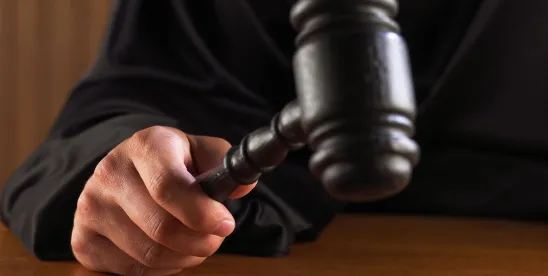On December 3, 2020, the United States Court of Appeals for the Second Circuit issued its decision in United States v. Strock (Strock), a ruling that will significantly strengthen the hand of the government, and of qui tam whistleblowers, in False Claims Act cases against companies awarded government set-aside contracts but do not meet the requirements of the particular set-aside. The contracts at issue in Strock were set aside for service-disabled, veteran-owned small businesses (SDVOSBs). Still, the Court’s reasoning also applies to other types of set-aside contracts, such as small business, women-owned small business, or HUBZone set-asides. This decision should hearten whistleblowers who have information about fraud in government contracting set-aside programs.
The Facts Of United States v. Strock
The government sued Strock Contracting, its owner Lee Strock, and one of Strock’s employees. The government alleged that Strock set up a new company called Veteran Enterprises Company (VECO) to bid on SDVOSB-reserved contracts from the Army, Air Force, and Veterans Administration. Strock, however, was not a disabled veteran. Instead, he recruited another individual, a disabled veteran named Terry Anderson. Strock gave Anderson the title of President of the company and made him the 51% owner of VECO, at least on paper. According to the government’s allegations, however, Anderson neither ran the company nor received 51% of its profits. Anderson had no control over VECO, received only a small share of VECO’s profits, and did not even have a key to VECO’s offices. In contrast, Strock made all the critical decisions for VECO, controlled VECO’s day-to-day operations, and funneled money from VECO to his other company, Strock Contracting. According to the allegations, VECO was awarded more than $21 million in SDVOSB set aside contracts.
When the government discovered these alleged facts, it sued Strock and his company under the False Claims Act. The government’s primary theory was that VECO would never have won any of the contracts if it had not falsely claimed to be an SDVOSB. Accordingly, even though VECO performed under the contracts and was paid for that performance, the government claimed that it was entitled to damages under the False Claims Act for three times the amount of those payments.
The Court’s Ruling
The federal district court in which the case was filed dismissed the government’s complaint for two main reasons: (1) failure to sufficiently allege “materiality,” and (2) failure to sufficiently allege “knowledge.” The Court of Appeals disagreed with both reasons.
As to “materiality,” the Court of Appeals applied the U.S. Supreme Court’s decision in Universal Health Servs., Inc. v. United States ex rel. Escobar, 136 S. Ct. 1989 (2016). The Supreme Court determined that for a false statement to violate the False Claims Act, it must be “material” (a legal term for “important”) to the government’s payment decision. The district court held that defendants’ false statements about VECO (namely, that VECO was a SDVOSB) were important to VECO getting the contracts but not important to the government’s decision to pay VECO for performing under those contracts. The Court of Appeals disagreed. It recognized that the government’s theory was one of “fraud in the inducement” and that if the defendants’ false statements were “material” to the government’s decision to award the contracts, then that was sufficient to make them material to the government’s later payment decisions. The Court of Appeals had no problem concluding that lying about VECO’s SDVOSB status was “material” to the award of those contracts since, without those lies, VECO would not have won the contracts in the first instance.
As to “knowledge,” the district court recognized that, according to the government’s allegations, Strock set up VECO for the specific purpose of obtaining SDVOSB contracts and that he did so knowing that Anderson would not actually control or own a majority of VECO. But the district court held that Strock did not “know” that this fraud would be “material” to the government – in essence, piggybacking on its incorrect “materiality” ruling. The Court of Appeals again disagreed, concluding that because the allegations were sufficient to show that Strock “knew” that VECO’s SDVOSB status was itself a fraud, they were also enough to show that Strock “knew” that VECO’s subsequent claims for payment under the SDVOSB set-aside contract would violate the False Claims Act.
The Implications Of The Court’s Ruling
The Court of Appeals grappled with a technically complicated issue, but it reached an entirely commonsense result. A government contractor that falsifies its eligibility for a set-aside contract and is awarded a contract that should have gone to someone else should not reap the falsification’s financial benefits. The government’s various set-aside programs aim to create opportunities for various small businesses to become established and grow through government contracting opportunities. The use of “front” companies, such as VECO, undermines the set-aside programs’ entire purpose.
The Court of Appeals’ decision in Strock will put future cases arising out of similar facts on a much more solid footing. Hopefully, this will encourage whistleblowers with information about set-aside fraud to come forward and to bring qui tam cases under the False Claims Act. A whistleblower who brings a successful qui tam case is doing a service to the nation and is also eligible for a reward from the government equal to between 15% and 30% of the amount of money recovered in the case. Unfortunately, the type of conduct alleged in Strock is all too common, not only in SDVOSB set-asides but also in set-asides for small businesses, women-owned small businesses, and HUBZones. The Court’s decision, along with information from brave whistleblowers, can help stop that abuse of these otherwise worthwhile programs.
The full decision of the Court of Appeals.




 />i
/>i

